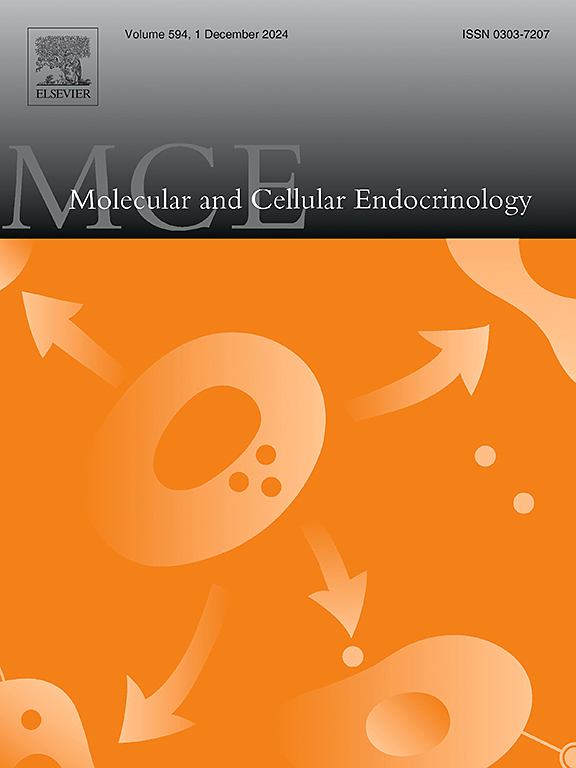Açaí seed extract mitigates intestinal and hypothalamic alterations in obese mice
IF 3.6
3区 医学
Q2 CELL BIOLOGY
引用次数: 0
Abstract
Obesity is a significant health concern, significantly contributing to increased morbidity and mortality by disrupting multiple physiological systems. It is strongly associated with metabolic dysfunctions, including impaired glycemic homeostasis, compromised intestinal barrier integrity, and gut microbiota imbalances, all exacerbating the risk of chronic diseases. The hydroalcoholic extract of açaí seeds (ASE), rich in phenolic compounds, has demonstrated beneficial effects on obesity and hyperglycemia; however, its impacts on gut health and gut-hypothalamus communication remain unclear. This study aimed to investigate the therapeutic effect of ASE in intestinal and hypothalamic alterations associated with obesity and compare it with Metformin. Male C57BL/6 mice were fed a high-fat or standard diet for 14 weeks. The ASE (300 mg/kg/day) and Metformin (300 mg/kg/day) treatments started in the tenth week until the fourteenth week, totaling four weeks of treatment. Our data show that the treatment with ASE and Metformin reduced body weight, ameliorated lipid profile, hyperglycemia, and plasma hyperleptinemia, and decreased the oxidative damage in the gut by reducing immunostaining of 8-isoprostane and NOX-4 expression, and improved the intestinal parameters and hypothalamic gene expression. Obesity-induced dysbiosis in the HF group was marked by reduced Proteobacteria and elevated LPS plasma levels, which were improved by treatments with ASE and Metformin. These findings suggest that ASE and Metformin are promising strategies to counteract the adverse effects of obesity on intestinal health and gut-hypothalamus communication, though they act through distinct mechanisms. Therefore, we can suggest that ASE is a promising natural product for treating the intestinal alterations associated with obesity.
Açaí种子提取物减轻肥胖小鼠肠道和下丘脑的改变。
肥胖是一个重要的健康问题,通过扰乱多种生理系统,显著增加发病率和死亡率。它与代谢功能障碍密切相关,包括血糖稳态受损、肠道屏障完整性受损和肠道微生物群失衡,所有这些都加剧了慢性疾病的风险。富含酚类化合物的açaí种子水醇提取物(ASE)已被证明对肥胖和高血糖有有益作用;然而,它对肠道健康和肠道-下丘脑沟通的影响尚不清楚。本研究旨在探讨ASE对肥胖相关肠道和下丘脑改变的治疗效果,并将其与二甲双胍进行比较。雄性C57BL/6小鼠分别饲喂高脂或标准饮食14周。ASE (300mg/Kg/天)和二甲双胍(300mg/Kg/天)治疗于第10周至第14周开始,共治疗4周。我们的数据显示,ASE和二甲双胍治疗降低了体重,改善了血脂、高血糖和血浆高瘦素血症,并通过降低8-异前列腺素和一氧化氮-4的免疫染色来减少肠道氧化损伤,改善了肠道参数和下丘脑基因表达。HF组肥胖引起的生态失调表现为变形菌群减少和LPS血浆水平升高,ASE和二甲双胍治疗可改善这一情况。这些发现表明,尽管ASE和二甲双胍通过不同的机制起作用,但它们是抵消肥胖对肠道健康和肠道-下丘脑通讯的不利影响的有希望的策略。因此,我们可以认为ASE是治疗与肥胖相关的肠道改变的一种很有前景的天然产物。
本文章由计算机程序翻译,如有差异,请以英文原文为准。
求助全文
约1分钟内获得全文
求助全文
来源期刊

Molecular and Cellular Endocrinology
医学-内分泌学与代谢
CiteScore
9.00
自引率
2.40%
发文量
174
审稿时长
42 days
期刊介绍:
Molecular and Cellular Endocrinology was established in 1974 to meet the demand for integrated publication on all aspects related to the genetic and biochemical effects, synthesis and secretions of extracellular signals (hormones, neurotransmitters, etc.) and to the understanding of cellular regulatory mechanisms involved in hormonal control.
 求助内容:
求助内容: 应助结果提醒方式:
应助结果提醒方式:


